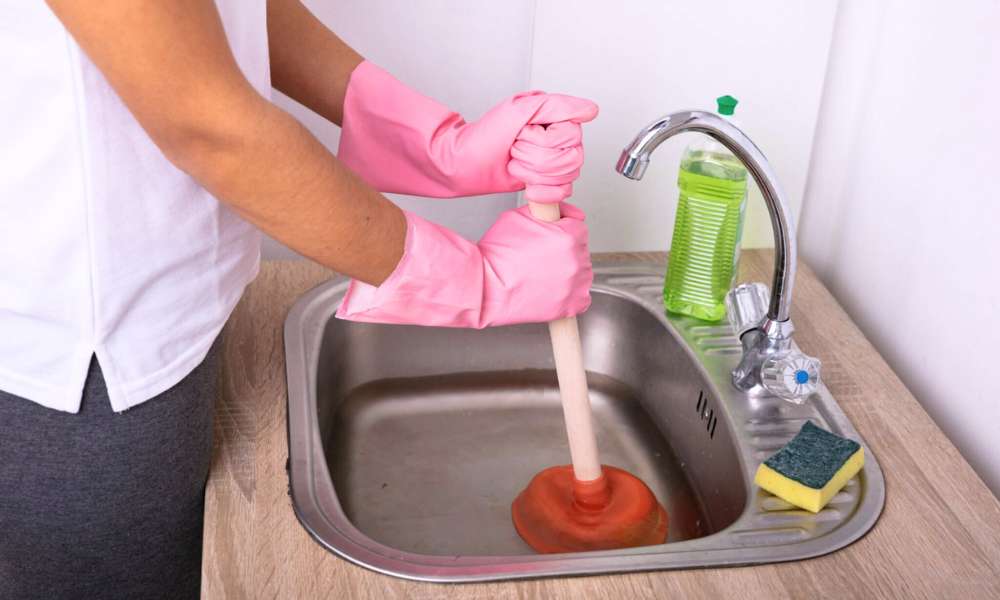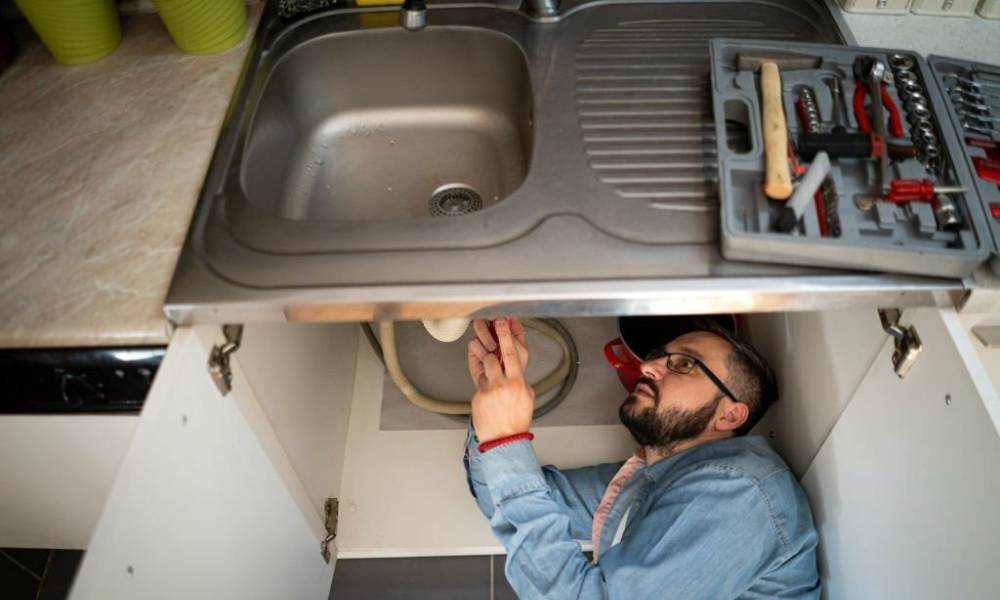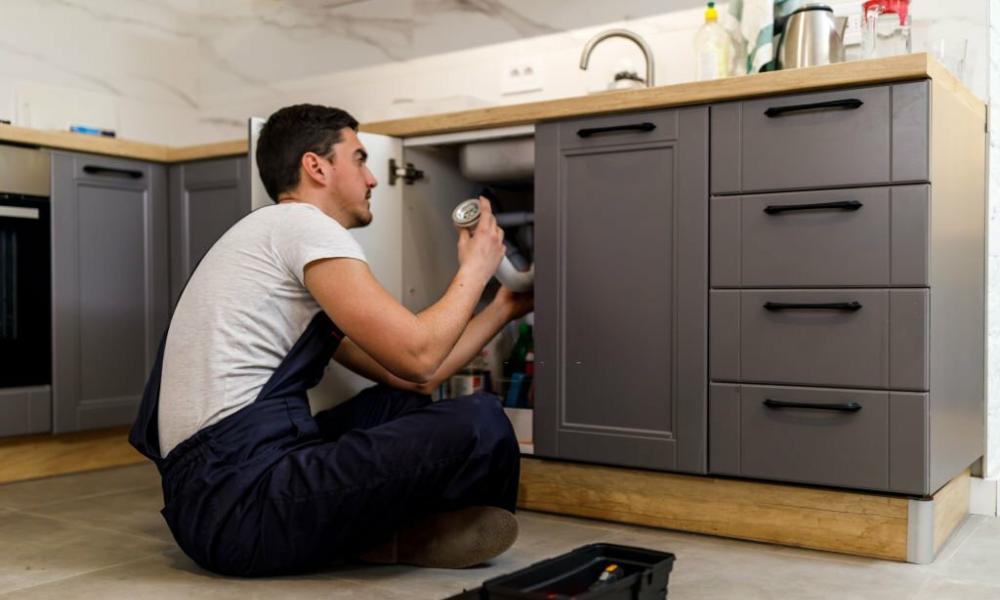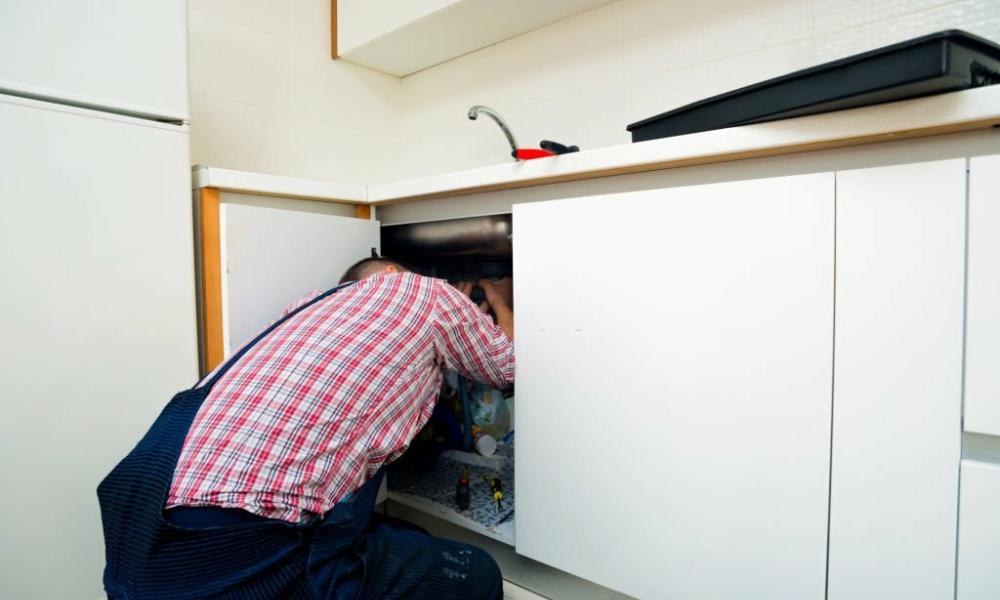To unclog a grease-clogged kitchen sink, Pour boiling water down The drain, Followed by a mixture of vinegar And baking soda. Allow The solution to fizz Then flush with more hot water.
Having a grease-blocked kitchen sink is a common household nuisance that can halt kitchen operations. Tackling this problem effectively requires understanding how to dissolve The grease And restore flow without damaging your plumbing. Homeowners And renters alike often seek quick, Safe remedies to fix their sinks without resorting to harsh chemicals.
A combination of household items And simple techniques can work wonders in removing The greasy blockages. Keeping The sink clear not only prevents inconvenient backups but also maintains hygiene And extends The life of your plumbing system. These tried-and-true methods offer a DIY solution to a potentially messy situation, Ensuring your kitchen remains functional And free from clogs.
Identifying Grease Buildup Signs
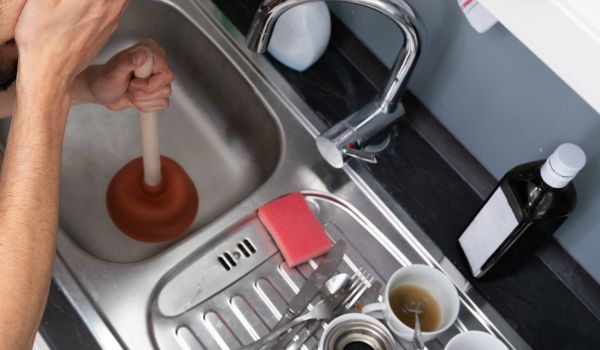
A clogged kitchen sink can throw a wrench into your daily routine, Creating inconvenience And potential health risks. Before diving into unclogging methods, It’s crucial to recognize The telltale signs of grease buildup. Early detection can save you from hefty plumbing bills And ensure a clean, Fully functional sink. Let’s explore The common indicators that your kitchen sink might be battling a grease clog.
Slow Drainage And Water Pooling
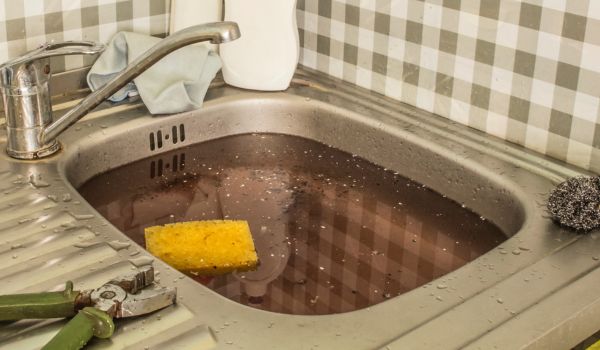
One of The most obvious signs of a grease-blocked sink is slow drainage. When grease accumulates along The pipe walls, It narrows The passageway for water to flow freely. This can lead to water pooling in your sink, Signifying that it’s time to address The clog. If you notice water takes longer to drain after washing dishes or The level rises alarmingly, Grease is likely The culprit.
Unpleasant Odors Emanating From The Sink
As grease builds up, It traps food particles And other debris, which can decompose over time. This decomposition process often results in unpleasant odors wafting from your sink. If you detect persistent foul smells in The vicinity of your kitchen sink, It can indicate a growing blockage in need of prompt attention.
Gurgling Sounds As Water Struggles To Pass
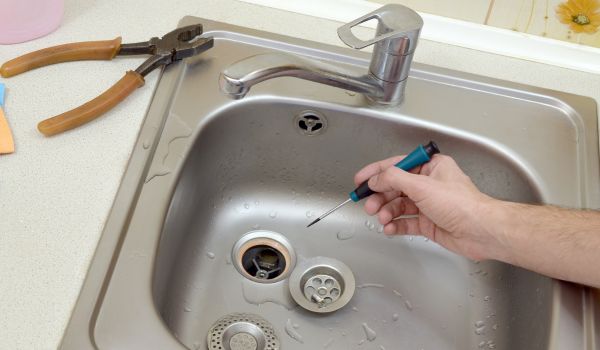
Gurgling sounds emerging from your drain might seem like a minor nuisance, But They often point to a significant underlying issue. When water maneuvers through The restricted pathways created by grease buildup, It can produce distinct gurgling noises. If you hear These sounds, It’s a signal that The water is having trouble flowing smoothly And it’s time to take action.
Diy Grease Unclogging Methods
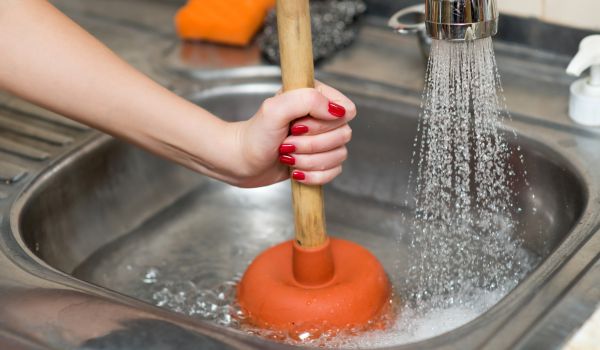
Dealing with A clogged kitchen sink can be more Than just A minor inconvenience. Grease buildup is a common culprit that can cause water to back up, Creating an unwelcome kitchen nightmare. Before you call a professional, Consider trying one of These DIY grease-unclogging methods. Below you’ll find straightforward steps to tackle grease clogs with items you likely already have at home, without the need for harsh chemicals.
Boiling Water Technique
Boiling water can sometimes clear grease clogs by melting The fat And allowing it to pass through The pipes. It’s a simple yet effective first line of defense. Here’s how:
- Bring a large pot of water to a rolling boil.
- Carefully pour The boiling water directly down The sink drain.
- Repeat if necessary, Allowing The hot water to work through The grease buildup.
Note: This method is best for metal pipes; PVC pipes may not withstand The heat of boiling water.
Vinegar And Baking Soda Mixture
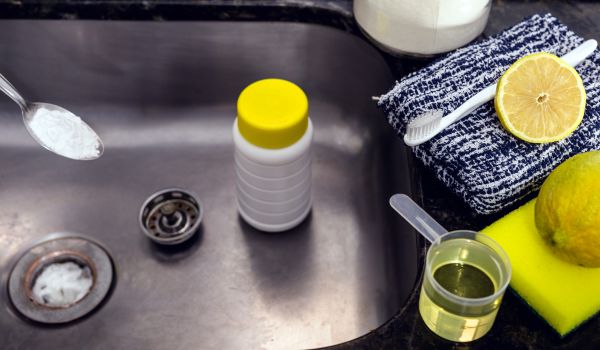
The vinegar And baking soda mixture is an eco-friendly solution for unclogging drains. When combined, These household staples create a fizzy reaction that can help break down grease And grime.
- Pour half a cup of baking soda directly into The drain.
- Follow with a half cup of white vinegar.
- Cover The drain with a plug or a wet cloth And let The mixture sit for 30 minutes.
- Finish by flushing with hot water to clear any remaining residue.
Dish Soap And Hot Water Method
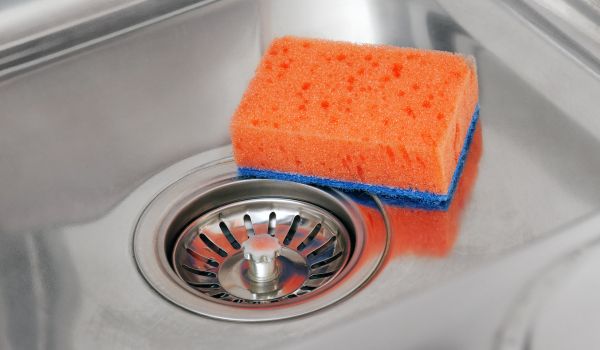
Grease fights grease in The dish soap And hot water method. Dish soap is designed to break down oils And fats, Making it an excellent option for greasy clogs.
- Squirt a generous amount of liquid dish detergent into The clogged drain.
- Boil another pot of water while The dish soap penetrates The grease.
- Pour The hot water into The drain to help The soap cut through The clog.
Repeat The process as needed until water runs freely through The sink. For persistent clogs, You may need to use a plunger with dish soap And hot water for added pressure.
Plumbing Tools And Their Use
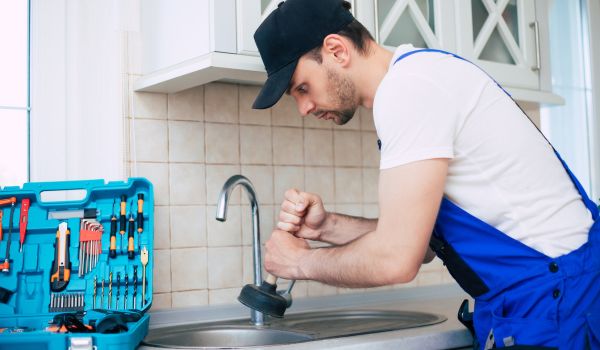
Encountering a clogged kitchen sink due to grease build-up can be a daunting kitchen nightmare. But with The right plumbing tools And techniques, You can clear The clog yourself without calling in a professional. Let’s explore The essential tools for this messy job And how to use Them effectively to restore The flow of your kitchen sink.
Plungers And Their Proper Technique
The plunger is a classic plumbing tool that is essential for tackling drain blockages. To use a plunger:
- First, Fill The sink partially with water to create a seal around The plunger.
- Place The plunger over The drain And ensure it covers The opening entirely.
- Pump vigorously while maintaining The seal, As this generates The pressure needed to dislodge The clog.
- After several pumps, Pull The plunger off The drain to break The suction.
- Repeat as necessary until The water starts to drain smoothly.
Proper plunger technique involves steady, Forceful pumps without losing The seal, Which is key to effectively clearing The clog.
Plumber’s Snake For Stubborn Blockages
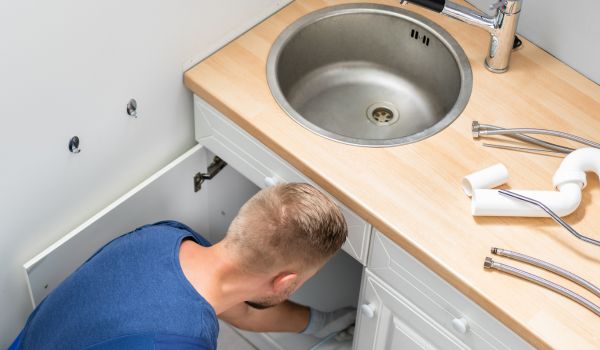
In cases where a plunger isn’t enough, The plumber’s snake, Or drain auger, Comes into play. This tool is specifically designed for breaking through tough blockages. Follow these steps:
- Insert The end of The snake into The drain.
- Slowly feed The cable into The pipe by turning The handle in a clockwise direction.
- When you feel resistance, You’ve likely hit The blockage. Continue to turn The handle to break up or hook The clog.
- Gently pull The snake out to remove debris, Being careful to avoid splashing.
- Run hot water down The drain afterward to clear The remaining grease.
A plumber’s snake can reach deeper And deal with clogs that are far beyond The reach of a plunger.
Wet/dry Vacuum As An Alternative
A wet/dry vacuum can offer an innovative solution to unclog a grease-filled kitchen sink. Here’s how:
- Set The vacuum to liquid mode.
- Create a tight seal over The drain using The vacuum’s hose And an old plunger head or any other creative sealing method.
- Turn on The vacuum with its highest setting to draw out The clog with powerful suction.
- After removing The blockage, Run hot water to cleanse any residual grease.
This method is often overlooked but can be extremely effective for removing blockages without the need for manual pumping or snaking.
Practices To Maintain Clear Drains

Kitchen sinks often become The unwitting receptacle for grease And oils, Leading to stubborn clogs that disrupt your daily routine. To fend off such blockages And maintain clear drains, It’s essential to adopt proactive practices. These habits not only help keep your kitchen sink in pristine condition but also save you from The hassle And expense of emergency plumbing services. Let’s dive into some tried -and tested strategies you can incorporate into your kitchen routine today.
Proper Disposal Of Grease And Oils
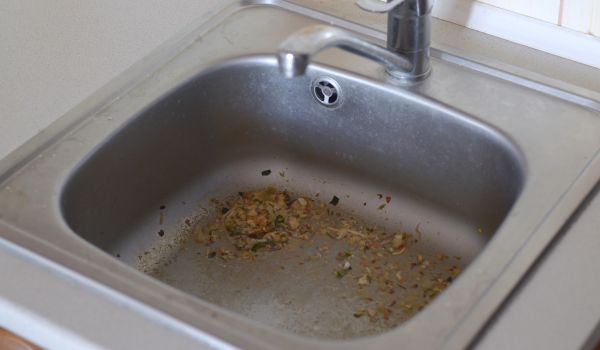
One of The most crucial steps in maintaining clear drains is The proper disposal of grease And oils. Never pour These substances down The sink. Here’s what to do instead:
- Wait for The grease to cool And solidify. Once cooled, Scrape it into a container you can throw away.
- If oils can’t solidify, Pour Them into an old jar or bottle And dispose of Them with The trash.
- Use a paper towel to wipe down pans with oily residue before washing Them.
This practice ensures your sink remains free from oily residues that can congeal And cause serious blockages.
Regular Cleaning Routines For Sinks
Maintaining a regular cleaning routine for your sink is another effective measure. Such habits prevent The build-up of grease And debris. Incorporate these into your cleaning routine:
- Use a baking soda And vinegar mix every week. Pour half a cup of baking soda followed by half a cup of vinegar down The drain, Let it sit for 10 minutes, And Then rinse with hot water.
- Clean your sink strainer regularly to prevent food scraps from entering The drain.
- Consider a professional drain cleaning service annually to remove any build-up that might be developing deep within your pipes.
Hot Water Flushes As A Preventive Habit
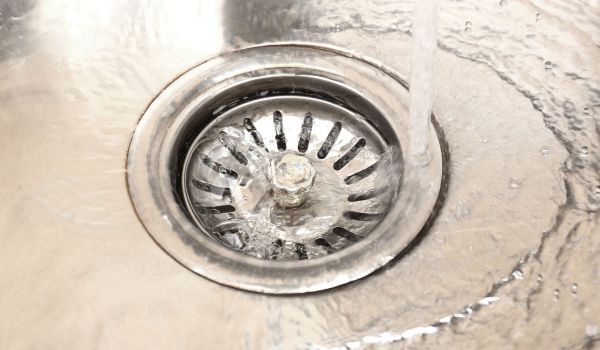
Hot water flushes stand as a simple yet extremely effective habit. It’s a preventive measure that helps dissolve any potential grease build-up. Implement this habit into your kitchen routine with The following steps:
| Frequency | Process |
| Weekly | Boil a kettle of water And pour it directly down The drain to help melt And clear away grease. |
| Post-Dishwashing | Run hot tap water for a couple of minutes to flush out any oils that might have been introduced. |
This hot water treatment coupled with The aforementioned practices can significantly reduce The risk of clogs And keep your kitchen plumbing functioning smoothly.
Signs That Demand Expert Intervention
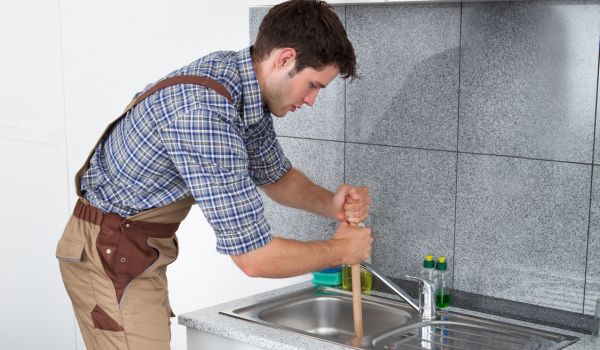
When your kitchen sink starts to show signs of a serious clog, It can be more than just an inconvenience—it could signal The need for a professional touch. Over-the-counter solutions And DIY methods might provide a temporary fix, But certain signs indicate that expert intervention is necessary to ensure your plumbing remains in top condition. Let’s explore The red flags that suggest throwing in The towel on home remedies And calling in The pros for backup.
Recurring Clogs Despite Home Remedies
Frequent clogs in your kitchen sink that don’t resolve with conventional home remedies are a clear sign that The grease blockage is more severe than it seems. Simple measures like boiling water, Baking soda with vinegar, Or a plunger might not be enough. When clogs become a regular ordeal, It’s time to seek professional assistance to prevent potential pipe damage or more serious plumbing issues.
Water Backup In Other Fixtures
It’s a troubling sign when water starts to back up in fixtures other than your kitchen sink, Such as The bathroom or even The toilet. This scenario indicates a blockage beyond The reach of your kitchen pipes. The interconnected nature of household plumbing means that a serious clog can affect The entire system. This type of problem requires The expertise of a skilled plumber who can accurately diagnose And remedy The issue.
Persistent Foul Odors Or Drainage Issues
Lasting, Unpleasant odors emanating from your kitchen sink should not be ignored. Foul smells signal trapped grease And food debris rotting away in your pipes. Similarly, Slow drainage or water that simply refuses to drain points to a substantial obstruction that typical cleaning agents might not resolve. Persistent symptoms like these are telltale signs you need an experienced plumber to efficiently clear out The blockage And refresh your sink’s system.
Frequently Asked Questions
What Will Dissolve Grease In A Drain?
Boiling water, Baking soda followed by vinegar, Or a mixture of dish soap And hot water can effectively dissolve grease in a drain. Commercial drain cleaners also work but use them cautiously.
How Do You Fix A Grease-Clogged Kitchen Sink?
Pour boiling water down The drain To melt The grease. Use A plunger To dislodge clogs. Mix baking soda And vinegar, Pour it down The sink, Then flush with hot water. For persistent blockages, Use a plumber’s snake Or call a professional.
Avoid chemical cleaners to prevent pipe damage.
How Do You Unclog A Deep-Clogged Kitchen Sink?
To unclog a deep kitchen sink, Begin by using a plunger. If ineffective, Try a plumber’s snake or chemical drain cleaner. For persistent clogs, Dismantle The P-trap underneath The sink to remove The blockage directly, Or call a professional plumber for assistance.
Conclusion
Dealing With A grease-clogged sink can be challenging but is manageable. Using The steps outlined, You can clear up your drain efficiently. Remember regular maintenance To prevent build-ups. For more household tips And tricks, Keep following our blog – your go-to source for practical solutions.
